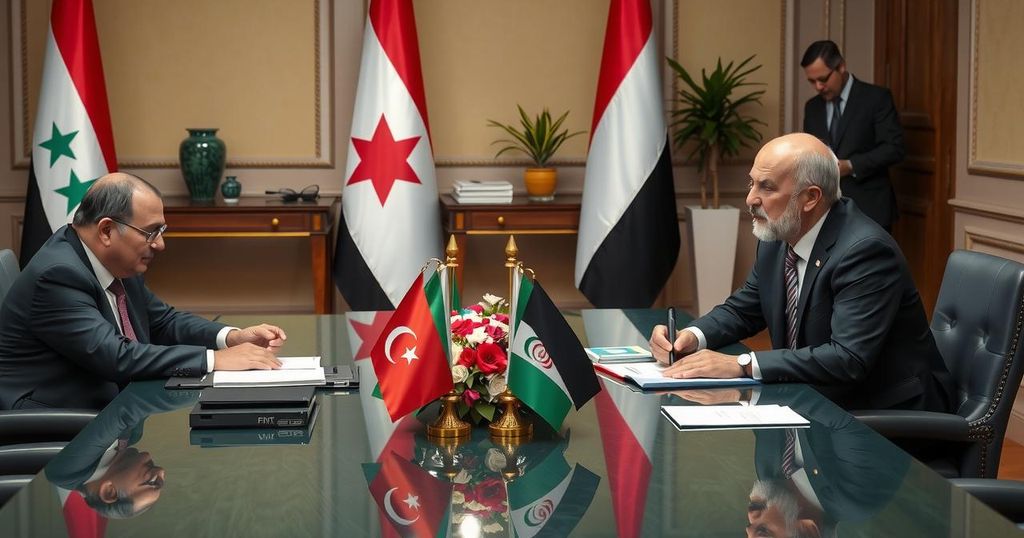Jordan and Syria Strengthen Security Collaboration Amid Changing Geopolitical Landscape

Jordan’s Foreign Minister Ayman Safadi announced the kingdom’s readiness to collaborate with the new Syrian authorities to tackle drug and weapons smuggling during a visit from his Syrian counterpart, Asaad al-Shaibani. They discussed border security challenges and the establishment of joint committees, while Shaibani expressed a desire for improved relations and the lifting of international sanctions.
On Tuesday, Jordan’s Foreign Minister Ayman Safadi affirmed the kingdom’s commitment to collaborating with the newly established Syrian authorities to combat drug and weapons smuggling along their shared border. During a joint news conference in Amman with Syrian Foreign Minister Asaad al-Shaibani and other officials, Safadi emphasized the discussions surrounding border security threats posed by drugs, weapons, and terrorism, particularly the resurgence efforts of Daesh, or the Islamic State (IS) group.
“We will work together to confront these shared challenges,” asserted Safadi, highlighting the formation of joint committees focused on critical areas including energy, health, trade, and water resources. Reiterating Jordan’s support for Syria, he stated that the Syrian people “deserve a free homeland after years of hardships.”
Shaibani, who was accompanied by Syrian Defence Minister Murhaf Abu Qasra and intelligence chief Anas Khattab, expressed optimism regarding the potential for improved relations between the two nations. Moreover, he requested Jordan’s assistance in efforts to alleviate the international sanctions imposed on Syria, especially following the recent developments that led to the ousting of President Bashar al-Assad by Islamist factions.
He described the US Treasury’s recent decision to ease some sanctions as a “breakthrough” that may facilitate the complete lifting of sanctions, thus enabling the reconstruction of Syria. Shaibani further asserted, “Syria will become a source of security, stability and cooperation with its neighbours and the countries of the region.”
Safadi’s visit to Damascus after the fall of Assad demonstrates Jordan’s ongoing diplomatic engagement, having maintained its embassy there throughout the Syrian civil war since 2011. Notably, Jordan has increased its efforts against the smuggling of various drugs and weapons across the 375-kilometre border with Syria, particularly targeting the amphetamines known as captagon.
The context of this article centers on the evolving geopolitical relations between Jordan and Syria following significant political changes in Syria. The relationship has been historically strained due to the Syrian civil war that began in 2011 and the various challenges including drug and weapons smuggling across their long border. With the recent shifting of power dynamics in Syria, Jordan sees an opportunity to strengthen its security cooperation with the new Syrian leadership. Furthermore, the broader implications of international sanctions against Syria involve regional stability which is a priority for Jordan.
In conclusion, Jordan’s commitment to work alongside Syria to address border security threats reflects a significant shift in diplomatic relations. The dialogue between the two nations encompasses not only immediate security concerns but also broader regional stability efforts amidst changing political circumstances. As both countries seek to enhance cooperation, the importance of lifting sanctions and rebuilding Syria remains a pivotal issue.
Original Source: www.barrons.com








